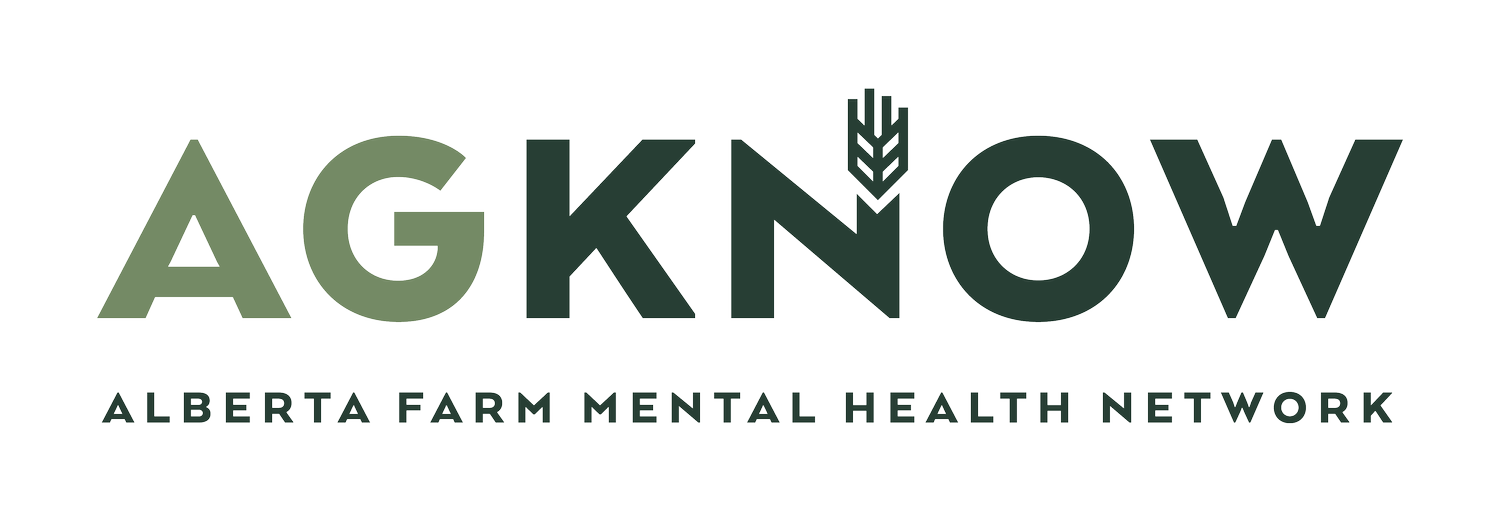THE HARDEST THING IS THAT YOUR PAYCHECK DEPENDS ON MOTHER NATURE
If you ask Sean when his mental health challenges began, he points to a debilitating anxiety attack that occurred in February 2017. As he explains, though, that attack was a long time coming.
“I’d been building up to it before that,” says Sean. “At that time, crops were poor, money was tight, and I’d taken on a second job.”
Adding to the stress was the fact that Sean, a volunteer firefighter in his community, had answered the call to assist with a serious car accident which involved a loss of life.
“So I had an anxiety attack, or you could call it a mental breakdown,” says Sean. “I spent a week in and out of the local emergency department talking to people, but that wasn’t the treatment I needed. I went and met with a community health therapist at the hospital – who helped me sort out the issues that were involved.”
The community health therapist referred Sean to another therapist who specialized in post-traumatic stress disorder (PTSD) and had experience working with firefighters on trauma issues. After five or six sessions with this professional, he began to find his feet once again.
WHAT ARE THE KEY MENTAL HEALTH STRESSORS FOR FARMERS? SEAN HAS EXPERIENCED MANY.
“The hardest thing is, your paycheck depends on Mother Nature,” he says. “You read there are good crops in Brazil, and you wish we had those here, but you can’t control anything. Farming has changed a lot over the past 30 or 40 years – for one thing, marketing now is more complicated, and input costs are at a record high. There’s also pressure to succeed and carry on the family legacy.”
Sean believes that while farming is more challenging than before, some of the reliable old community supports have withered away.
“The days of gathering in the coffee shop to talk are gone because we have fewer farmers now,” he says. Sean keeps in touch with some male farmer friends in a group chat. That helps, and he sees potential for more formally structured farmer peer groups to enable mutual support.
To be clear, no one’s saying that farmer mental health is a new issue. A new generation, however, wants to deal with it as a health issue and not as a failure of character.
“The older generation dealt with the same issues, but they kept it bottled up,” says Sean. “I know there were instances of suicide or self-harm in that generation. I’ve had a 90% positive reaction from people talking about mental health. I’ve received texts, phone calls, and tweets. But there’s still the other 10% that says, man up and deal with it.”
Anecdotally, it seems the stigma around mental health has eased off in recent years. Even so, it takes courage for a farmer to talk about the issue. Sean has been comfortable doing so, providing an example to others.
“I’m an open guy, and I’m fine talking about personal things, and I hope others get some benefit from that,” he says. “For someone who’s thinking about getting help, maybe I can do something for them. I would say don’t be afraid to reach out for help. Talk to your family doctor. It was hard for me, but it was the best thing I ever did.”
HERE ARE A FEW THINGS YOU CAN DO:
1. Reach out to someone you trust instead of withdrawing. It’s important that we call on people to talk to when we are going through difficult times. Remember that burnout and stress are common among farmers – reaching out to another farmer will benefit you and them!
2. Find something in your work that you find really interesting, and that helps you renew your sense of purpose and value.
3. Finish something that you’ve been meaning to get to - nothing too big, just a task that lets you check off something from today’s to-do list and gives you a sense of accomplishment.
Article by Dr Rebecca Purc-Stephenson
Applied Social Psychologist and Professor in the Department of Social Sciences
BOOKING AN AGKNOW SESSION
CHOOSE A THERAPIST
The members in our referral network have experience with farmers and the agriculture industry in Alberta. We know context is important so you can spend less time getting them up to speed and more time getting to the root of the issue.
SCHEDULE A CALL
You have direct access to everyone in our referral network, so once you find a therapist you resonate with, fill out their form and book your first session.
TALK ABOUT IT
Whether in person, virtual or through a telephone session now is your chance to talk about how you are really doing. Remember - we were never meant to do this alone.





